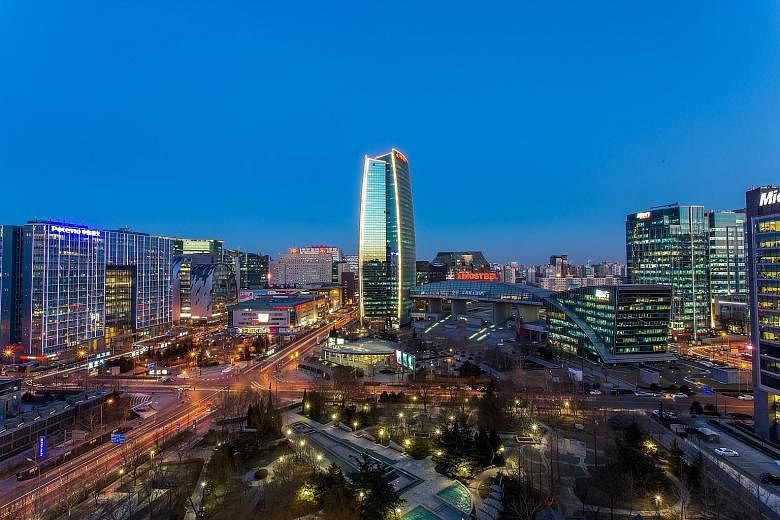A high-tech park in Beijing dubbed China's "Silicon Valley" has created an international buzz with its proposed schemes to attract foreign talent, even though these will require the Chinese government's approval.
Under proposals made by the Zhongguancun park located in the north-western Haidian district, former Chinese citizens will receive an "overseas Chinese card"; foreigners will get temporary identification papers; and young foreigners will enjoy internship opportunities.
The buzz began after Mr Guo Hong, who heads Zhongguancun's administrative committee, told Beijing's legislative body on Nov 27 about its proposals, citing how foreigners make up only 1.5 per cent of the two million people in the park compared with 36 per cent in California's Silicon Valley.
News reports of his proposals were quickly picked up by foreign media outlets, especially those in countries with sizeable Chinese immigrant communities like Canada.
Many reports zoomed in on the overseas Chinese card, hailing it as a move by China to sidestep its policy against dual nationality so as to boost its search for global talent.
Given the difficulty in obtaining Chinese permanent residency - only 248 green cards have been issued yearly on average since 2004 - there was immense interest as cardholders reportedly would enjoy permanent residency status, which means no need for work visas.
Also, cardholders reportedly would be treated like Chinese citizens in areas such as investment, property purchase and education.
But the lack of details from Zhongguancun - which covers an area of about 100 sq km - soon led to uncertainty over whether the schemes would be approved.
The Canada City Post last Friday quoted a source from the Zhongguancun authorities as saying that media reports about the overseas Chinese card were overblown.
"The 'overseas Chinese card' remains at an exploratory stage and a suggestion to the central government," the report added.
It was a point reiterated yesterday by the Zhongguancun committee, in response to media queries.
"The policy is still awaiting approval from the State Council, the Foreign Ministry and Public Security Ministry," it was quoted as saying in media reports.
A key part of the confusion is over the target beneficiary of the overseas Chinese card.
Mr Guo reportedly used hua yi ka to describe the card and said it would apply to former Chinese citizens. But hua yi usually refers to overseas Chinese who are former Chinese citizens or whose ancestral roots are in China.
The Straits Times contacted the Zhongguancun committee over whether the card would apply to foreigners with Chinese ethnicity, such as Chinese Singaporeans, but did not get a response by press time.
Others also wonder whether a high-tech park has the authority to issue an identification card that would be recognised across China.
"I'm very interested in getting this card so I don't have to apply for visas yearly, but it has to be widely usable across China for it to be of real benefit," said a former Chinese citizen in his mid-30s who emigrated to Australia six years ago. He is running a trading firm in northern Hebei and wanted to be known only as Mr Jin.
Observers are split on whether China would or should roll out an overseas Chinese card.
Some believe it contradicts the national policy against dual nationality, which is deemed crucial to China's anti-graft drive by preventing corrupt personnel from transferring their wealth overseas.
In fact, in a crackdown from January 2013 to June last year, China cancelled the household registration accounts of more than one million people suspected of holding foreign citizenship.
"Such a (overseas Chinese card) scheme might provide loopholes for corrupt officials," Beihang University anti-corruption expert Ren Jianming told The Straits Times.
But others noted the benefits of a tiered foreign talent policy that distinguishes between foreigners in general and those who are former Chinese citizens.
Immigration law expert Liu Guofu of the Beijing Institute of Technology said the scheme does not contradict the central government's policy of limiting population growth in big cities like Beijing, adding that foreigners now make up less than 1 per cent of the capital's workforce.
He also cited similar schemes in countries such as India and South Korea, which issue green cards to foreigners with Indian and South Korean ethnicity, respectively.
"China could lose out in the global hunt for talent without a similar scheme," he told The Straits Times.

